Osteoporosis causes your bones to weaken and impacts many people in old age, especially women. But can you get disability for osteoporosis? Is this disorder considered a disability, or do you need some other problems in conjunction with this to claim? Read on to find out.
Contents
Osteoporosis is a common bone disorder that affects almost 10 million Americans above the age of 50. If you have difficulty with activities of daily living due to osteoporosis, you may be wondering if you can get a disability for it. Unfortunately, there is no clear answer.
Each case is evaluated individually, and whether or not someone is disabled due to osteoporosis depends on several factors. In this blog post, we’ll explore what those factors are and how you can go about getting a disability for osteoporosis.
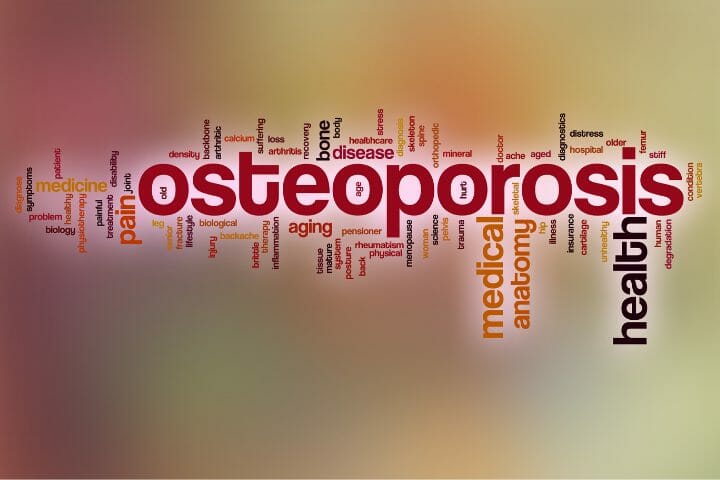
What Causes Osteoporosis?
Many factors can contribute to the development of osteoporosis. Some of the most common include:
- Aging: As we age, our bodies become less efficient at repairing and rebuilding bone tissue. This natural decline in bone health can lead to osteoporosis.
- Family history: If you have a family member with osteoporosis, you may be more likely to develop the condition yourself.
- Gender: Women are more prone to develop osteoporosis than men due to hormonal changes during menopause.
- Certain medications: Some drugs, such as steroids and specific cancer treatments, can weaken bones and lead to osteoporosis.
- Poor nutrition: A diet lacking essential nutrients like calcium and vitamin D can contribute to the development of osteoporosis.
- Lifestyle choices: Smoking, excessive alcohol consumption, and a sedentary lifestyle can increase your risk of developing osteoporosis.
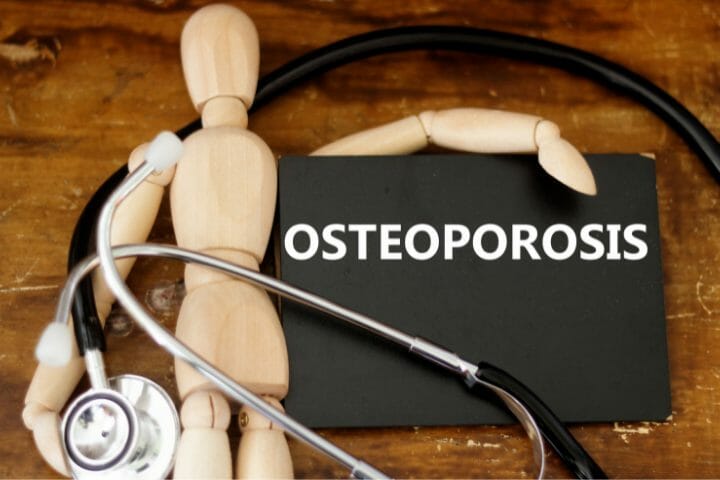
Symptoms of Osteoporosis
Several symptoms may be associated with osteoporosis. Many people with the condition do not experience any symptoms and only discover they have osteoporosis when they suffer a bone fracture. However, some people do experience symptoms, which can include:
- Back pain
- Loss of height over time
- A stooped or hunched posture
- Bone fractures, particularly in the spine, hip, or wrist
Is Osteoporosis Considered a Disability?
There are misconceptions about osteoporosis and whether or not it is considered a disability. While the condition can lead to debilitating fractures and chronic pain, it is not technically classified as a disability by the Social Security Administration (SSA). However, this does not mean that people with osteoporosis cannot qualify for disability benefits.
Osteoporosis is a degenerative bone disease that causes the bones to become weak and brittle. This makes them more susceptible to breaks and fractures, even from minor falls or trauma. Osteoporosis can cause severe pain and loss of mobility, making it difficult for sufferers to perform everyday activities.
The SSA does not have a specific listing for osteoporosis, but other conditions can be used to qualify for disability benefits. For example, if osteoporosis has caused a vertebral fracture, you may be eligible for benefits under the SSA’s spinal disorders list.
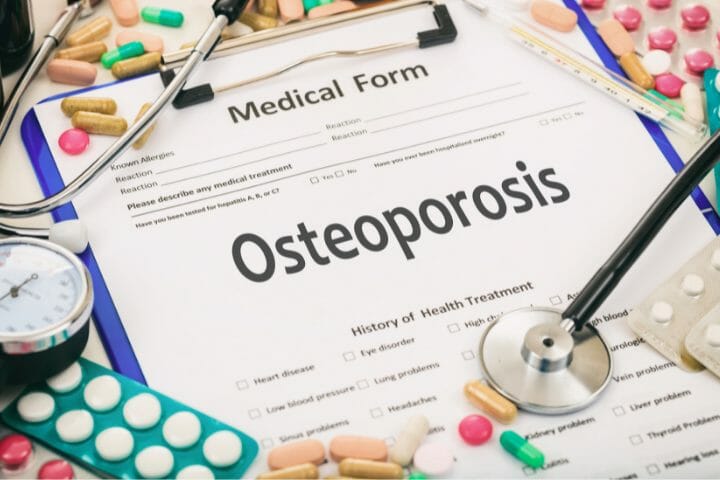
Can I Get Disability for Osteoporosis?
Many different disabilities can qualify a person for Social Security disability benefits. Osteoporosis, a condition characterized by thinning bones and an increased risk of fractures, is one such disability.
While osteoporosis can cause pain and mobility problems, it is typically not considered a disabling condition. However, if osteoporosis leads to other complications, such as bone fractures or chronic pain, it may be eligible for long term disability insurance benefits.
To qualify for Social Security disability benefits, you must first meet the agency’s definition of disabled. This means that you must have medical conditions that have lasted or is expected to last at least 52 weeks or result in death, which prevents you from working in any capacity.
Osteoporosis itself does not typically meet this definition, as it is not a terminal illness and does not usually prevent a person from working. However, if osteoporosis leads to other complications that do meet the definition of disabled, such as chronic pain, broken bones or difficulty walking, the condition may be eligible for benefits.
You might also like to read: Can You Get Disability For Foot Problems?
The Social Security Administration Evaluation and Medical Qualifications
The Social Security Administration (SSA) uses a five-step sequential evaluation process to determine whether individuals are disabled.
The SSA will consider an individual’s osteoporosis as a disabling condition at any point in this process if the severity of the condition meets or equals the criteria outlined in the SSA’s Blue Book listings.
To be found disabled under the SSA’s listings, an individual must have documentation from a qualified medical source showing that they have osteoporosis that has resulted in:
A bone density test showing T-scores of -2.5 or below at the femoral neck, lumbar spine, or total hip; AND
One of the following:
- Severe pain or other symptoms that limit the individual’s ability to function daily;
- A fracture that has not healed after three months;
- An inability to walk for at least 12 months due to the osteoporosis; OR
- Repeated falls due to osteoporosis.
Suppose an individual does not meet or equal the SSA’s listings for osteoporosis. In that case, they may still be found disabled if their condition prevents them from doing any work. The SSA will consider the individual’s age, education, past work experience, and residual functional capacity (RFC) to make this determination.
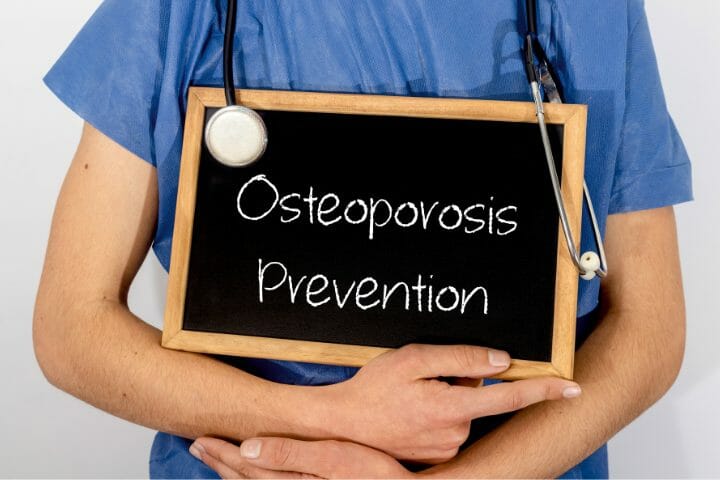
How to Qualify for SSD Benefits with Osteoporosis
To qualify for SSD benefits with osteoporosis, your medical conditions must meet the requirements outlined in the Social Security Administration’s “Blue Book.”
The Blue Book lists all the conditions that qualify someone for disability benefits. Your osteoporosis must meet the criteria under the Blue Book’s section on musculoskeletal disorders to be eligible for benefits.
Specifically, you must be able to show that your osteoporosis has caused:
- bone fractures that have not healed properly
- a loss in the height of at least three inches
- severe deformity in your spine
- chronic pain
- the limited range of motion in your joints
In addition, you must be able to show that your osteoporosis has caused either:
- an inability to walk
- an inability to sit up
- an inability to stand up
If you meet the above criteria, you will likely qualify for a listing in the Blue Book of Social Security Disability benefits.
You might also like to read: Can You Get Disability For Back Problems?
Evidence Needed to be Related to Your Osteoporosis Diagnosis
If you’ve been diagnosed with osteoporosis, your doctor will likely recommend a treatment plan that includes medication and lifestyle changes. But before starting any treatment, it’s essential to make sure that the diagnosis is accurate.
Osteoporosis can be difficult to diagnose, and other conditions can cause similar symptoms. So your doctor will want to review your medical history and order some tests to rule out other possibilities.
Here are some of the tests that might be ordered:
- A bone density test uses X-rays or ultrasound to measure how dense (solid) your bones are. It measures your bone mass and compares it with standard ones. It can help show whether you have osteoporosis or are at risk for developing it.
- Blood tests: These can check for low vitamin D or calcium levels, contributing to osteoporosis and help rule out other conditions that can cause bone loss.
- X-rays: X-rays of the spine or other bones can sometimes reveal fractures that might not be apparent otherwise.
- CT scan: This imaging test can provide a more detailed view of the bones than an X-ray.
- MRI: This imaging test can also show detailed images of the bones and is sometimes used to look for fractures.
Once your doctor has all the information, they’ll be able to develop a treatment plan that’s right for you. Depending on the severity of your osteoporosis, this might involve medication, lifestyle changes, or both.

Steps You Can Take to Win Your Disability Claim in Osteoporosis
If you have osteoporosis and are unable to work, you may be able to receive disability benefits. Osteoporosis causes the bones to become weak, making them more susceptible to hip fractures and other types of fractures. To win your claim, you will need to provide evidence of your diagnosis, treatment, and how the condition has impacted your ability to work.
- Get a thorough diagnosis. Be sure to see a specialist who can properly diagnose your condition. You will need medical records detailing your diagnosis to prove your case.
- Follow your treatment plan. If you are not following the recommended treatment for your osteoporosis, it will be difficult to prove that you are disabled. Take all of your medications as prescribed and attend all doctor’s appointments.
- Keep a symptom diary. It can be helpful to keep a watch of your symptoms in a diary or journal. Include how often you experience pain, fatigue, and other symptoms.
- Get support from family and friends. Those closest to you can provide emotional support and help with day-to-day tasks if needed.
- Join a support group. There are many online and in-person support groups available for those with osteoporosis. This can be a great way to connect with others who understand what you are going through.
By following these steps, you can increase your chances of winning your disability claim in osteoporosis. Be sure to consult with a qualified disability attorney to get started on your claim today.
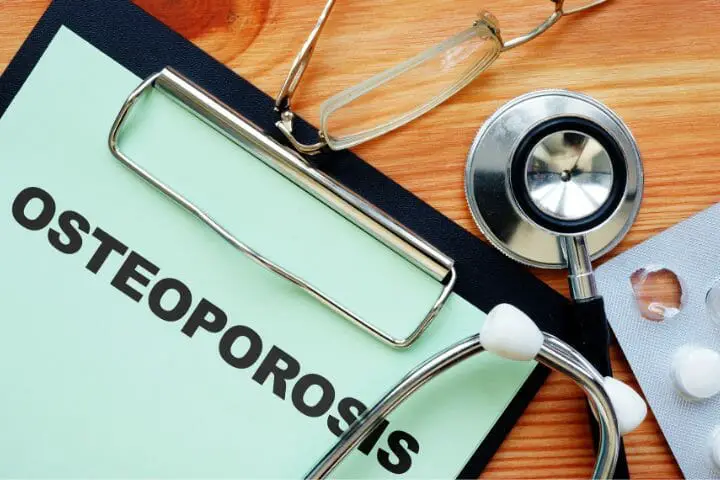
Frequently Asked Questions
How often does medicare pay for bone density tests?
A bone density test is a simple test. It is a non-invasive test that uses low-dose X-rays to measure the density of your bones. The test is used to diagnose osteoporosis and can also be used to monitor the condition. According to the National Osteoporosis Foundation, Medicare covers bone density tests once every two years for women at high risk for osteoporosis.
Is osteoporosis an autoimmune disease?
There are several autoimmune disorders such as rheumatoid arthritis and ankylosing spondylitis which cause bone damage, but osteoporosis is not one of them.
However, some research suggests that the damage to your bones and immune system changes may be connected in osteoporosis. Scientists are studying this link between osteoporosis-related disorders with the body’s natural defense network – or rather lack thereof!
Wrap Up
Osteoporosis is a disease of the bone, and while social security does not consider osteoporosis in itself to be a disability, there are several conditions that might arise out of it that are. You can file a disability claim for bone fractures or a spinal disorder that occurs due to osteoporosis. It would be best to contact reputable disability lawyers to put up your case.
We thank you for reading the article and hope we have covered everything that you needed to understand about filing a disability claim with this disorder. If we left out anything, or you have questions that we have not covered, please write to us in the comments section.
